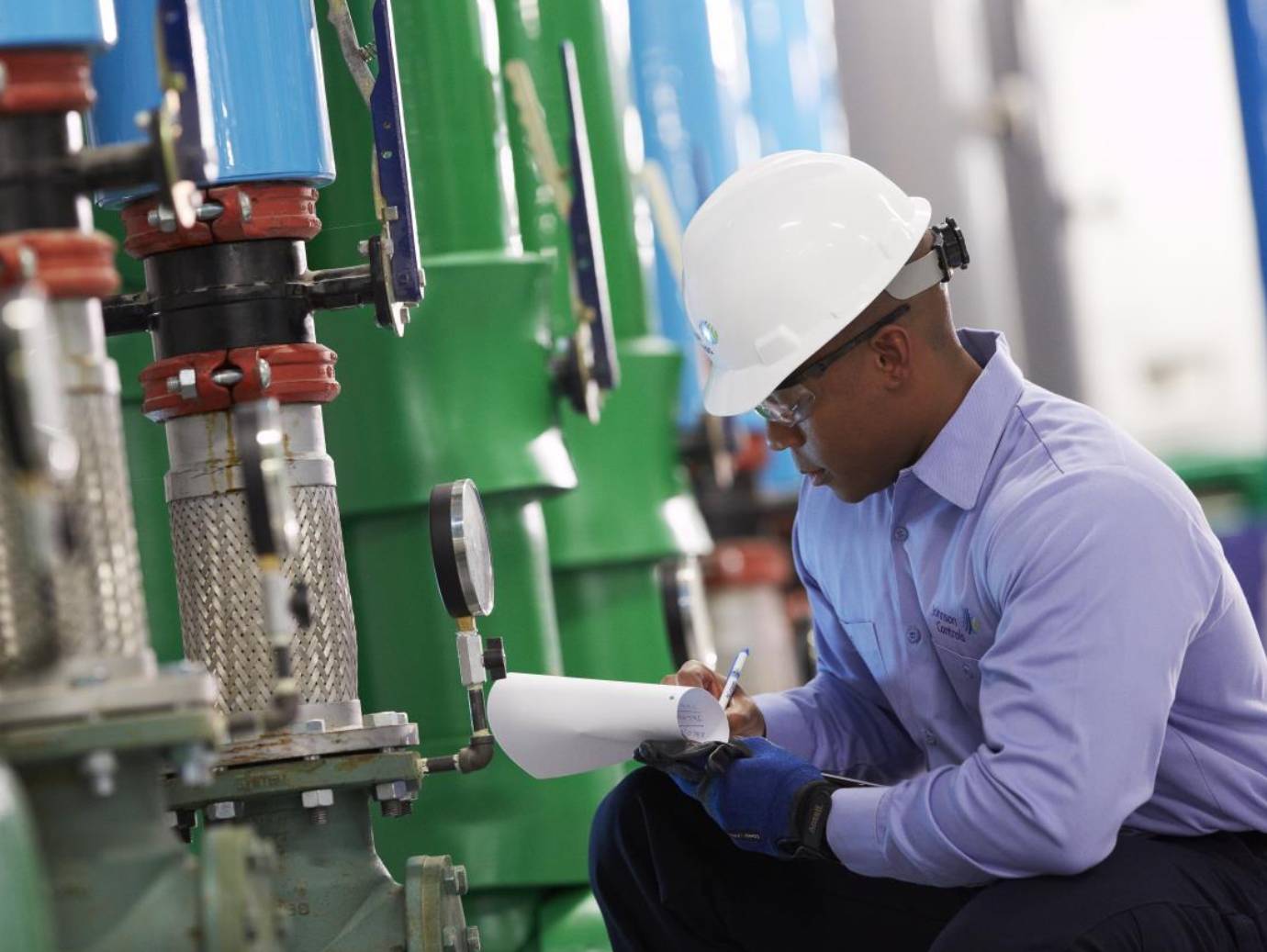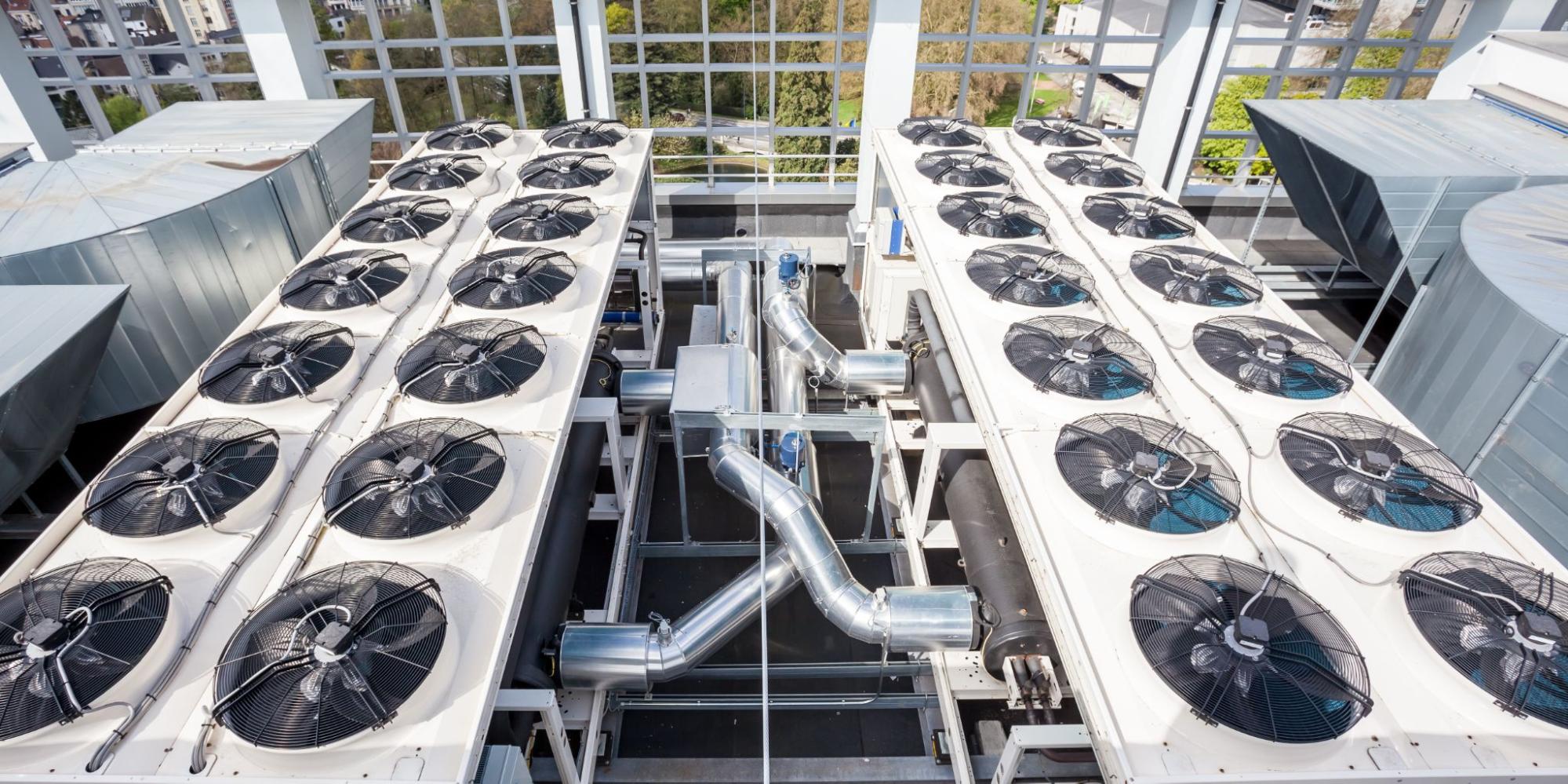Trusted Air Conditioning Contractor for Your Air Conditioning Needs
Trusted Air Conditioning Contractor for Your Air Conditioning Needs
Blog Article
A Thorough Consider HVAC Solutions and Their Influence On Energy Efficiency and Expense Financial Savings
The role of a/c solutions in boosting energy efficiency and achieving expense financial savings is more important than ever before, as house owners and services seek sustainable solutions in an increasingly eco-conscious world. With technological developments like wise thermostats and high-efficiency elements, the capacity for enhancing system efficiency is huge. Yet, truth effect of these advancements depends greatly on normal upkeep and positive problem management. As we discover the complex connection between a/c systems and functional costs, including the shift towards eco-friendly choices, the concern develops: how can these strategies be efficiently executed to optimize both financial and environmental advantages?

Value of A/c Solutions
heating and cooling systems are an important component of modern structures, playing a vital function in maintaining healthy and comfy interior atmospheres. These systems, encompassing air, heating, and air flow conditioning, are crucial for managing temperature, moisture, and air high quality, thus ensuring the health of residents. Effective cooling and heating systems contribute substantially to producing an optimum interior climate, which is crucial for both business and domestic rooms.
In industrial structures, a/c systems are essential to giving a risk-free and productive atmosphere. By controlling interior environment problems, these systems assist avoid the development of mold and mildew and the spread of air-borne pollutants, hence securing the wellness of workers and consumers. In addition, in domestic setups, HVAC systems enhance living problems by offering regular thermal comfort and improving interior air quality, which is essential for general wellness.
Furthermore, the design and maintenance of cooling and heating systems have a direct impact on energy usage and functional expenses. Properly created and kept systems can substantially reduce power use, leading to lowered utility expenses and a smaller sized carbon impact. The effectiveness of these systems thus plays a vital role in advertising sustainability and energy preservation within buildings, highlighting their importance in the contemporary architectural landscape.
Advancements in Heating And Cooling Modern Technology
Advancement in heating and cooling modern technology is changing the way buildings take care of interior environments, ushering in a brand-new period of efficiency and control. Current improvements have actually focused on maximizing energy intake while boosting customer comfort. One notable advancement is the integration of wise thermostats, which make use of synthetic intelligence to find out occupancy patterns and readjust temperatures appropriately, reducing unnecessary power use.
Variable Cooling Agent Flow (VRF) systems stand for an additional considerable jump onward. These systems permit precise temperature level control in different zones of a structure, improving comfort and reducing power waste. VRF innovation is specifically valuable for huge commercial spaces, offering adaptability and scalability.
In addition, the advent of Web of Points (IoT) gadgets has actually transformed HVAC systems into interconnected networks qualified of real-time information collection and evaluation. This connectivity enables predictive maintenance, ensuring systems operate at peak performance and decreasing unforeseen downtime.
Furthermore, developments in products and layout, such as using high-efficiency coils and compressors, have actually boosted total system performance - Heating Contractor. The fostering of eco-friendly cooling agents also underscores the industry's dedication to sustainability
These technical technologies are crucial in reducing operational prices and ecological influence, establishing new standards for developing climate management.
A/c Upkeep and Effectiveness
Making sure ideal performance of a/c systems expands beyond technical advancements; it likewise pivots on efficient upkeep methods. Normal maintenance is critical for maintaining efficiency, minimizing energy consumption, and expanding the life expectancy of cooling and heating systems. The key goal is to make sure that all parts operate at their peak potential, therefore minimizing energy wastage and keeping consistent indoor comfort levels.
Regular maintenance tasks, such as cleaning or changing air filters, checking cooling agent levels, and checking ductwork for leakages, are necessary for avoiding unneeded stress on the system. Stopped up or dirty filters can obstruct air movement, creating the system to work more difficult and consume even more energy. Likewise, inadequate cooling agent levels can decrease cooling down effectiveness, causing higher operational expenses.
Additionally, periodic examinations by qualified professionals can identify prospective issues prior to they intensify into expensive repair work or system failings. These assessments commonly include checking electric links, calibrating thermostats, and ensuring the total integrity of the heating and cooling system. By addressing small troubles early, organizations and property owners can stay clear of unforeseen breakdowns and improve power efficiency.
Cost-efficient Heating And Cooling Solutions
For those looking to obtain one of the most out of their air, ventilation, and home heating conditioning systems without breaking the financial institution, exploring economical HVAC options can make a substantial difference. One instant action is to invest in programmable thermostats, which enable customers to set particular temperature levels for different times of the day, optimizing energy usage and lowering unnecessary consumption. By automating temperature level adjustments, property owners can attain significant savings on energy expenses.
Routine maintenance is another critical component of cost-efficient HVAC management. Ensuring that filters are cleaned or changed routinely, ductwork is secured, and devices are serviced by experts can avoid costly repairs and boost system long life. Precautionary maintenance not only keeps system effectiveness but additionally assists in preventing unexpected failures that can bring about costly emergency repair services.
Furthermore, retrofitting existing systems with energy-efficient parts, such as variable speed electric motors or high-efficiency compressors, can be a prudent investment. These upgrades enhance operational performance, decrease power usage, and can frequently be implemented at a portion of the cost of a complete system replacement.
Ecological Impact Decrease
Decreasing the ecological impact of HVAC systems is important in today's pursuit of lasting living. HVAC systems are substantial contributors to power intake, representing nearly 40% of energy usage in commercial buildings. This power need frequently counts on fossil fuels, hvac installation bring about greenhouse gas emissions and ecological destruction. Transitioning to much more effective systems, such as those making use of renewable energy resources, can considerably mitigate these effects. furnace air conditioner
Technical advancements in a/c style and operation, including the integration of smart thermostats and energy-efficient heatpump, are pivotal in decreasing carbon footprints. These innovations enable maximized power use, minimizing wastage and boosting general system performance. Additionally, taking on routine maintenance techniques makes certain cooling and heating systems run at peak effectiveness, further curtailing unneeded energy intake.
In addition, making use of ecologically friendly cooling agents is important, as conventional refrigerants, like CFCs and HCFCs, have actually been eliminated due to their ozone-depleting homes. Modern alternatives, such as hydrofluoroolefins (HFOs), deal minimized environmental threats, lining up with global ecological protocols. By accepting these sustainable techniques, heating and cooling services can play a transformative function in reducing ecological impacts, advertising energy effectiveness, and cultivating a more lasting future.
Conclusion

In addition, the design and maintenance of Heating and cooling systems have a straight influence on power intake and functional prices. Regular maintenance is important for sustaining performance, lowering energy intake, and extending the life span of Heating and cooling systems. A/c systems are considerable factors to power usage, accounting for almost 40% of energy use in industrial buildings. Additionally, adopting routine maintenance techniques ensures Heating and cooling systems operate at peak effectiveness, additional reducing unnecessary energy intake.
The change to eco pleasant A/c systems additionally advertises and minimizes operational costs sustainability. (Heating Contractor)
Report this page